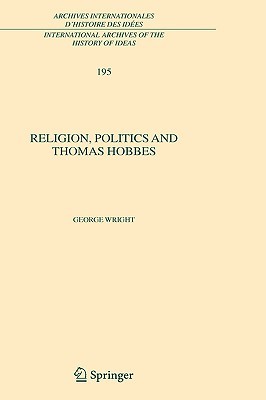
- We will send in 10–14 business days.
- Author: George Wright
- Publisher: Springer
- ISBN-10: 1402044674
- ISBN-13: 9781402044670
- Format: 15.8 x 24.1 x 2.3 cm, kieti viršeliai
- Language: English
- SAVE -10% with code: EXTRA
Reviews
Description
The essaysthat comprise thisvolume were written over the period of some ten years, for different purposes and on different occasions, but they are unitedby a number of features, which this preface may serve to indicate. While the collection begins with a translation drawn from the fourth p- sentation of Hobbes's political thought, namely, the Latin Leviathan of 1668, after The Elements of Law (1640), De Cive (1642 and 1647) and the English Leviathan of 1651, the focus of the essays is largely on theEnglish version of his masterpiece of political philosophy. It isthe center of gravityinthe twenty eight years spanninghis departure from England for exile in France in 1640 till the publication in 1668 of the Latin Leviathan, withits lengthy and c- plex Appendix. The translation andintroduction of theAppendix, previously published, appears here with several revisions and additions, as does the essay 'Thomas Hobbes and the EconomicTrinity. ' A second feature common to these essays isthe deliberate attempttomake sense of thereligious elements inHobbes's thought, bothintheir own rightand inrelation to his politics and natural science. These themes are woven together in complex ways. For instance, objecting to the use of Greek philosophic language and concepts to interpret the doctrines of the Christian religion, he propounds what he takes to be a more thoroughly scriptural interpretation, in pursuit of the goal of demolishing the basis for anypower inthe state independent of thecivil sovereign.
EXTRA 10 % discount with code: EXTRA
The promotion ends in 22d.03:13:33
The discount code is valid when purchasing from 10 €. Discounts do not stack.
- Author: George Wright
- Publisher: Springer
- ISBN-10: 1402044674
- ISBN-13: 9781402044670
- Format: 15.8 x 24.1 x 2.3 cm, kieti viršeliai
- Language: English English
The essaysthat comprise thisvolume were written over the period of some ten years, for different purposes and on different occasions, but they are unitedby a number of features, which this preface may serve to indicate. While the collection begins with a translation drawn from the fourth p- sentation of Hobbes's political thought, namely, the Latin Leviathan of 1668, after The Elements of Law (1640), De Cive (1642 and 1647) and the English Leviathan of 1651, the focus of the essays is largely on theEnglish version of his masterpiece of political philosophy. It isthe center of gravityinthe twenty eight years spanninghis departure from England for exile in France in 1640 till the publication in 1668 of the Latin Leviathan, withits lengthy and c- plex Appendix. The translation andintroduction of theAppendix, previously published, appears here with several revisions and additions, as does the essay 'Thomas Hobbes and the EconomicTrinity. ' A second feature common to these essays isthe deliberate attempttomake sense of thereligious elements inHobbes's thought, bothintheir own rightand inrelation to his politics and natural science. These themes are woven together in complex ways. For instance, objecting to the use of Greek philosophic language and concepts to interpret the doctrines of the Christian religion, he propounds what he takes to be a more thoroughly scriptural interpretation, in pursuit of the goal of demolishing the basis for anypower inthe state independent of thecivil sovereign.


Reviews